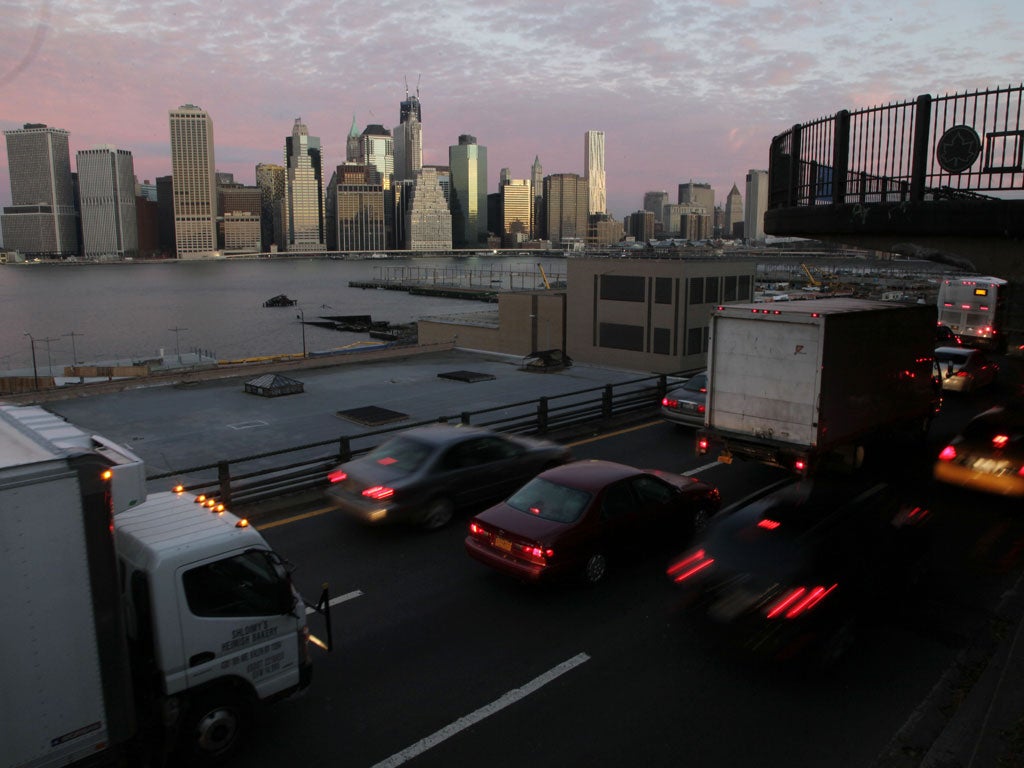Simon Calder: Ignorance is not always bliss; consumer protection in travel
The man who pays his way

Suppose you are booked to fly to New York today for a much-anticipated Manhattan short break. What would you do? The response of many travellers – including the 10,000 or so British passengers holding confirmed reservations for flights to JFK or Newark airport this weekend – would be to cancel.
To visit a city picking itself up after the death and devastation wrought by "Superstorm Sandy" may seem unhelpful for the citizens and unrewarding for the traveller. Yet there are two powerful arguments in favour of going ahead with a planned visit. The first is the sheer resilience of New York. The city will bounce back quickly after a storm described by the mayor, Michael Bloomberg as "maybe the worst we have ever seen". Some parts of the city and the surrounding region, such as the borough of Queens and the New Jersey resort of Atlantic City, have taken a hammering. Yet most places on the tourist trail bear only surface wounds.
By election day on Tuesday, attention will have shifted away from America's biggest city towards the capital, Washington DC, and the assorted "swing states" across the nation that will decide the next occupant of the White House. The next time the world's focus turns back to New York, the city will be back to its own, very individual version of "normal".
More pragmatically, many of those 10,000 travellers booked on flights this weekend will take a financial hit if they decide against travelling to America – with airlines, hoteliers and travel insurers all disclaiming responsibility.
The state in which most of us travellers reside is blissful ignorance, at least in terms of who is responsible for what, when things go wrong. Most of the time, we get away with it. Trains, boats and planes almost always behave as they are expected to. This summer has proved reassuringly free of tour-operator collapses and large-scale industrial unrest. Almost everyone has been there, done that and come home with tan, memories and luggage intact.
State of play
Superstorm Sandy's unwelcome visit exposes the muddle in consumer protection that prevails in travel and the importance of knowing where you stand. For the sake of your future peace of travelling mind, continue reading – whether you are booked to New York this weekend or just dreaming of your next adventure.
First, if you have booked a flight on its own and the departure is scheduled as planned, the airline's attitude may be: "We have a seat for you and undertake to deliver you safely. The fact that you may no longer wish to go is not our problem, pal." In practice, some airlines will allow passengers to switch dates or destinations, but there is no legal obligation to do so.
Next, did you book a hotel separately? Even if the airline allows you to switch flights, the hotelier may legitimately say: "We are open for business and your room is waiting so you can't have your money back nor change dates." While some hotel deals can be cancelled without penalty, generally the cheapest rates require full payment in advance with no refunds.
The travellers in the strongest position are those on proper package holidays, with a flight and hotel booked at the same time through the same firm – whether a big company such as Trailfinders or a small specialist operator. The holiday firm is obliged to deliver the trip you bought. If events prevent it from doing so, you should be offered a postponement, a different destination or a refund – your choice.
Some heated discussions are likely between travel firms and clients about the extent to which a trip to the US is jeopardised. If all you bought was a flight and a midtown Manhattan hotel, the tour operator could reasonably argue that it can provide what you ordered. But if you booked a journey centred on a particular sporting or artistic event that is cancelled, or a specialist tour such as exploring the NYC Subway network – trust me, such trips exist – then the holiday firm will need to come up with some plausible alternatives.
The best policy?
"No problem, my insurance will cover it," some travellers may fondly imagine as they cancel their trip. Cover what, exactly? While travel insurers will be paying out for some people who found themselves stranded Stateside this week, they will not look kindly upon customers "disinclined to travel". A change of heart between booking a trip and the departure date is not an insurable risk. Boarding that plane is the best policy.
Subscribe to Independent Premium to bookmark this article
Want to bookmark your favourite articles and stories to read or reference later? Start your Independent Premium subscription today.

Join our commenting forum
Join thought-provoking conversations, follow other Independent readers and see their replies